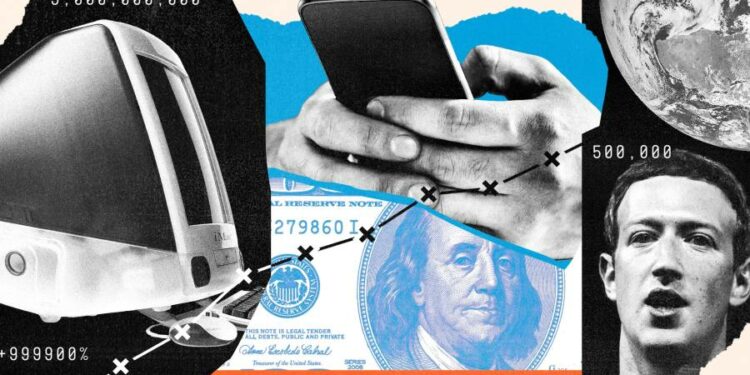The writer is a technology pioneer, philanthropist, and founding funder of the Oxford Internet Institute
Twenty-one years ago, the FT reported the opening of the Oxford Internet Institute (OII), a department established to research the opportunities and challenges presented by the then-burgeoning internet. A companion article on the same page delved into one of the most pressing questions of the time: how to “bridge the digital divide” and ensure access for everyone to the wealth of information and resources available online.
A generation later, the issues are equally pressing and immeasurably more complex. In 2001 there were 500,000 global internet users; in 2021 there were five billion. Digital technology is now inextricably a part of everything we do, from politics and financial systems to our work, social lives and (increasingly since the pandemic) education. And much of our information about the world comes via the internet.
There is still a “digital divide” — though how we define it has changed. Unfortunately, many remain excluded from full participation in the digital world by age, poverty or lack of education. But the more worrying divide today is between the corporate and institutional “haves” who dictate the terms of the online experience, with their extraordinary power and influence, and the “have-nots” — everyday internet users, navigating a digital realm in which it can be hard to know who and what to trust.
Our reliance on digital technology has placed us in the hands of powerful tech innovators and the giant companies they spawned. They are commercially driven, with deep pockets and immense technical knowhow. They have the power to influence our daily lives in ways few understand, and they often remain largely unchallenged as a result.
Two recent events have highlighted the need for transparent analysis and independent study: the Covid pandemic and the war in Ukraine, in both of which misinformation has played a significant role. Misinformation affected our perception of Covid-19’s origins, stifled government responses (especially in the early days), and politicised public safety measures, including stay-at-home mandates, mask-wearing, and vaccinations.
The war, like many conflicts before it, has been fought through propaganda as much as on the battlefield. But with digital technology, the source of propaganda is more easily obscured while the information itself is much more easily spreadable. And advances in tech have enabled the creation of superficially impressive “deep fake” content — such as the video in which Ukrainian president Volodymyr Zelenskyy’s head was superimposed on someone else’s body and made to appear as if instructing Ukrainian soldiers to surrender.
The internet is protean, its impacts are manifold and its influence profound. If we are to somehow define and agree global rules for our engagement with it — a regime of information governance to which all players can sign up — it can only happen on the basis of detailed, critical study.
But who can we trust to guide us through the minefield?
Traditional news organisations are struggling to compete with well-funded special interest groups that spin up websites and hire influencers to promote their agenda on social media. A generation ago, many in the media had the resources to vet fact from fiction effectively as part of their mission of delivering accurate news. Now, most are focused on survival.
Probably not technology companies either. Twitter, Meta and their competitors are commercially driven: they want eyeballs on their websites, and ads to support their business models. They are product builders and content providers. They didn’t sign up to be arbiters of truth.
And probably not policymakers. Most politicians are simply overwhelmed by the nuance and complexity of technology in the information age and lack the time and the skills to make sense of it.
That leaves academia and institutions such as the OII to fulfil the role of an impartial voice in the conversation.
Today, as information consumers, we all have to grapple with fake news, false influence and the question of where to find the truth. It is a daily challenge to filter out, as best we can, all the online noise and the information we don’t find credible, and to seek out trusted sources. For all the information at our fingertips, we are still struggling to understand and manage the impact of digital technology on society.











